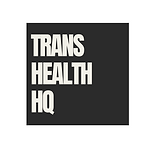
2024 H2A HARVARD COHORT
Our 2024 cohort is as diverse as the problems they seek to solve with their social impact ventures. They include students from seven schools across Harvard University — including Harvard College, Harvard T.H. Chan School of Public Health, Harvard Kennedy School, and Harvard Law School — as well as teammates from 12 other institutions. Projects include: Using text messages to improve postnatal outcomes in Haiti; creating a more accountable marketplace for clean energy; empowering more doctors to provide gender-affirming care; and developing tools for individuals to more easily monitor their cognitive health.

Aionergy
A Harvard Law student and Harvard College alums have teamed up on Aionergy - a marketplace that allows individuals without hourly energy tracking capabilities to match their energy demand to clean energy generation 24/7. Through machine learning algorithms, they seek to rectify the issue of undercounting carbon emissions by allowing everyone to verify clean energy usage on an hourly basis.

MabLab
A Harvard College and Columbia University student have teamed up to develop test strips for the five deadliest lacing agents in recreational drugs: fentanyl, carfentanil, xylazine, methadone, and methamphetamine. Their accurate, affordable, and easy-to-use harm reduction tool will enable users to detect the presence of these illicit substances within two minutes — preventing upwards of one hundred thousand accidental deaths every year.

Mom-entum
Three Harvard College students have teamed up to create Mom-entum, which aims to use an SMS messaging system to provide important maternal health-related information to mothers to improve postnatal maternal healthcare outcomes in Mirebalais, Haiti.

Bridge: The Health Equity Lab
Two Harvard students from Harvard Kennedy School and Harvard Business School are bridging gaps to achieve health equity by addressing the overwhelming landscape of health/social services. Their genAI co-pilot helps cut through complexity to guide benefits navigation end-to-end, and its community-based design meets patients where they are.

Mii
A Harvard College student has teamed up with a University of Sydney student to create Mii - the passport for patient health, allowing doctors to access all past and current medical information in their blockchain-based Electronic Health Records system and offering patients a consolidated view of their medical data.

Pillanti
Students from Harvard College, Harvard Law School and Harvard T.H. Chan School of Public Health have teamed up to create Pillanti, a software tool to help physicians choose the most appropriate antibiotic for a patient with an infection.

CaringMinds
A student from Harvard T.H. Chan School of Public Health and Harvard College teamed up to utilize peer connections to offer free and accessible mental health support to China's Gen Z population. Through services like peer guidance and the CaringMinds mailbox, they aim to build a community that improves the mental well-being of Chinese youth, ensuring they have the support and happiness they need.

Mobile Memory
A Harvard Medical student has teamed up with students from Brown, Brandeis, UC Davis School of Medicine and Yale to create Mobile Memory, which integrates machine learning and novel vocal biomarkers into an audio diary for Alzheimer's screening, enabling users to proactively monitor their cognitive health to allow for earlier detection of dementia, while preserving precious memories.

Trans Health HQ
A Harvard T.H. Chan School of Public Health student is creating Trans Health HQ, a clinical decision support tool and continuing medical education course that empowers doctors to provide gender-affirming care.

Youterus Health (YH)
A doctoral student at the Harvard T.H. Chan School of Public Health founded Youterus Health (YH) to address the urgent need to improve African women's health. YH seeks to transform how we talk about, diagnose, and treat uterine-related conditions by leveraging data and insights. Powered by a global team of diverse expertise, YH works in Africa to close the gender data gap in health.